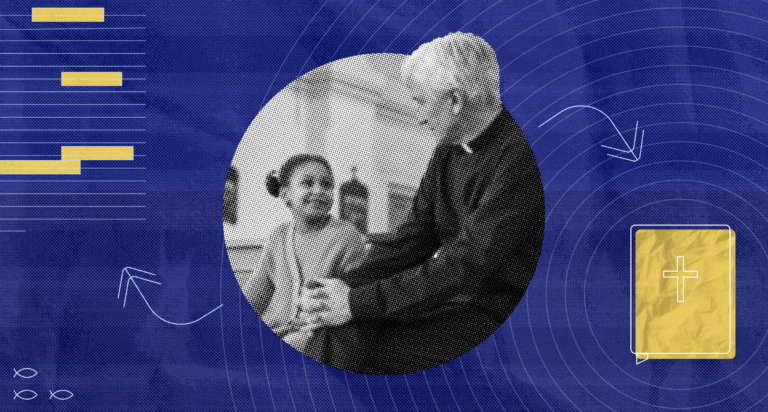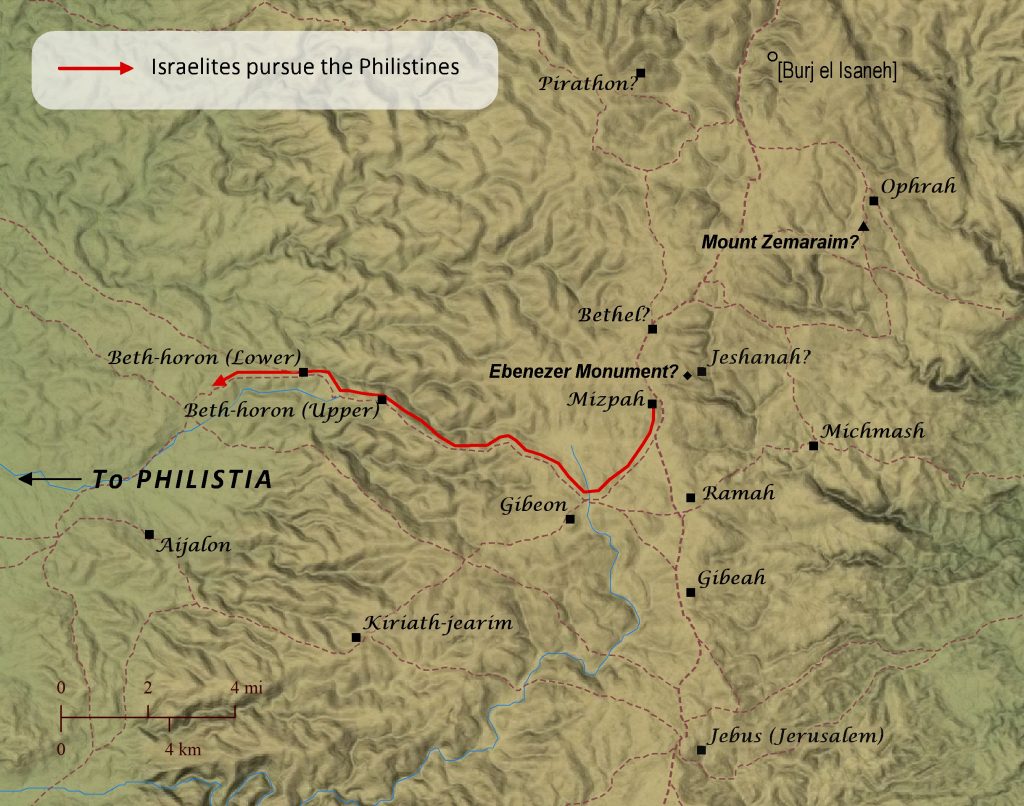In Acts 20, Paul left Ephesus to return to Jerusalem to deliver the collection to the Jerusalem church at Pentecost. The collection was a gift from the Gentile churches to the Jerusalem believers. Romans 15:26 states that “Macedonia and Achaia were pleased to make a contribution for the poor among the saints in Jerusalem.” Romans was written from Corinth during the three months preceding Paul’s journey back to Jerusalem. In 1 Corinthians 16, Paul tells the church to have their contribution ready when he arrives.
It may be the case that this fundraising is a response to Paul’s meeting with James, the Lord’s brother, Peter, and John in Jerusalem. In Galatians 2:1-10, Paul says that the Jewish Christians in Jerusalem agreed that the gentile convert Titus did not need to be circumcised. They only asked Paul to “remember the poor,” which he was eager to do (Gal 2:10). The “poor” in this context may refer to the Jewish Christians in Jerusalem, who were still living in poverty. (See this post on the poor in the Letter of James.)
What is unusual is that Luke does not mention the collection in the book of Acts, although that is the point of a large part of traveling back to Jerusalem at the time of Pentecost. Why Luke would omit this collection is not clear. Some have speculated that the collection was not well-received by the Jerusalem church, perhaps even rejected. It is certainly true that the scene is rather tense when Paul arrives with a large contingent of Gentiles to deliver the gift.
Sometime after the riot in Ephesus (Acts 19:23-41), Paul resumed his plan to visit several churches in Macedonia and Greece. Paul stayed in Corinth for three months. Based on the greetings at the end of the book, it is likely he finished the Book of Romans during this stay. That he stays in Corinth shows that many of the problems present in the letters to the Corinthians are resolved, or at least that Paul can remain in fellowship with the church for some time (2 Cor 12:14; 13:1). Jews in Corinth plot against Paul, forcing him to change his travel plans (20:3).
Several people now accompany Paul on his return to Jerusalem to deliver the collection. These individuals are from churches Paul founded. These men represent Paul’s churches who have chosen to accompany Paul back to Jerusalem to deliver the collection. This large entourage may have been practical. Traveling with a large sum of money is always dangerous. No one can accuse Paul of collecting funds for himself since these men will accompany Paul all the way to Jerusalem. The group goes to Troas to meet Paul and Luke there.
- Sopater, the son of Pyrrhus, a Berean, “probably identical with the Sosipater of Rom. 16:21.”[1] “The patronymic ‘Pyrrhus’ is likewise characteristic of Macedonian nomenclature” with two inscriptions from Thessaloniki.
- Aristarchus and Secundus from Thessalonica. Secundus may be a slave name, whether he is now free or not.
- Aristarchus is a Macedonian (Acts 19:29; Acts 27:2; Col 4:10).
- Gaius of Derbe.
- Timothy, of Lystra.
- The Asians Tychicus and Trophimus, from Ephesus. Trophimus (Acts 21:29, 2 Tim 4:20). “The name is listed as the twelfth commonest Greek cognomen in Rome in GPR990–95; 3.1439), with no fewer than 297 occurrences. Horsley points out that its popularity peaks markedly in the first century AD (New Docs 3.91–93, No. 80).
Luke is now traveling with Paul. He is possibly from Philippi. Since a representative from Philippi is not mentioned, Luke may serve in that role. Witherington has suggested on several occasions that Luke is from that city, and he is undoubtedly a companion for the final trip to Jerusalem (Witherington, Acts, 603).
Paul leaves just after Passover (20:6), not Christian Easter. Paul is eager to arrive in Jerusalem by the time of Pentecost. This gives him fifty days, which may be enough time for favorable sea travel. What is his motivation for this haste? Paul may wish to exploit the symbolism of Pentecost, the feast that celebrates the firstfruits of the harvest. The salvation of the Gentiles is, in fact, a great harvest; the gift from the Gentile churches is an indication that God has given a great harvest among these Gentiles (Witherington, Acts, 603). Several texts in the prophets indicate that the nations would come to Jerusalem to worship the Lord (e.g., Zech. 8:20-23). It may be that Paul intends to emphasize this symbolism by timing his arrival at Pentecost– God is saving the Gentiles.
Paul’s return to Jerusalem, therefore, fulfills his commitment to “remember the poor” (Gal 2:10), specifically the Jewish Christians who still lived in voluntary poverty in Jerusalem. But more than that, Paul is enacting the eschatological pilgrimage of Gentiles to Jerusalem by bringing a gift to the Jerusalem Christian community, accompanied by representatives of Gentile Christianity.
Bibliography: Dunn, Beginning from Jerusalem, 932-947. Scot McKnight, “The Collection for the Saints” in DPL, 143-147. Paul mentions the collection in 1 Cor 16:1-4, 2 Cor 8-9, and Rom 15:25-32.

 2 weeks ago
36
2 weeks ago
36










 English (US) ·
English (US) ·